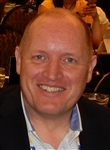Activities
28 September 2017
16:00 - 17:15
Kromme Nieuwegracht 80, room 1.06
Cultural History Seminar Series: Albert van der Zeijden (UU), ‘Intangible heritage and the changing face of memory’

Abstract
Ten years ago Steven Vertovec coined the concept of super diversity, to describe ‘the dynamic interplay of an increased number of new, small and scattered, multiple-origin, transnationally connected, socio-economically differentiated and legally stratified immigrants who have arrived over the last decade’. A city district such as West-Kruiskade, in Rotterdam, now harbors more than 160 ethnicities, something which it has in common with most of the larger city conurbations in Western Europe. This new super diversity is mostly researched from the perspective of the huge social and economic challenges it poses. But we may assume that it also alters completely the way in which history and heritage are perceived nowadays – including the intangible heritage. Is it still possible to speak of a common ‘shared’ heritage? Heritage for whom and for what is the pertinent question to ask. West-Kruiskade presents us with an interesting case study to explore how intangible heritage is experienced in such a diverse city district. In an article for the International Journal of Intangible Heritage I have explored the challenges for the UNESCO convention for the Safeguarding of the Intangible Heritage. But the new superdiversity has more broader implications also for history and memory in general which I will explore in a new article for the Jahrbuch für Europäische Ethnologie, to be published later this year. Drawing on Rodney Harrison’s concept of ‘dialogical heritage’ I will argue that heritage formation is a dynamic process involving many stakeholders.
Bio
Albert van der Zeijden is visiting researcher Intangible Heritage Studies at Utrecht University. His research focuses on processes of social belonging in connection with intangible heritage formation in a superdiverse context. He also writes about controversial heritage, heritage and tourism, and the role of heritage institutions in implementing the UNESCO convention for the Safeguarding of Intangible Cultural Heritage, for which he coined the concept of ‘cultural brokerage’. His work at the Dutch Centre for Intangible Heritage could be characterized as a form of Public Folklore, a discipline which has much in common with Public History, one of the fields of expertise of the Cultural History Research Group at Utrecht University of which he is now a member.


